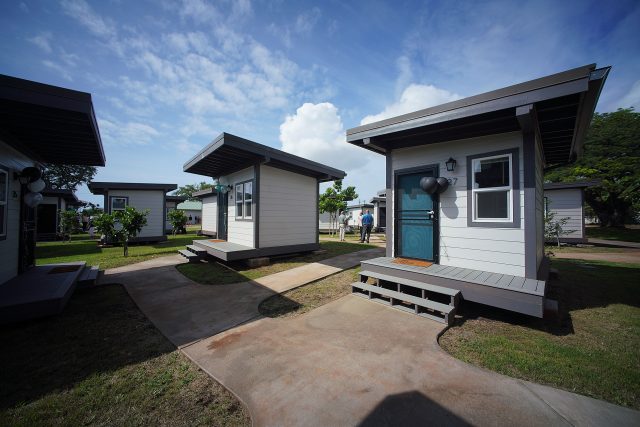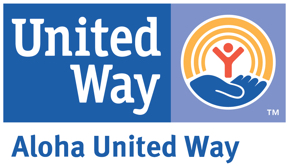
Article curtosy of Honolulu Civil Beat
Hawaii lawmakers have proposed bills steering hundreds of millions of state and federal dollars toward a range of housing solutions.
Midway through the 2022 legislative session more than two dozen bills related to housing remain alive, spawning optimism for advocates focusing on one of Hawaii’s most pressing social and economic issues.
Some are legislative blockbusters that relate to funding, and include $600 million for the Department of Hawaiian Home Lands to build homes for thousands of Native Hawaiians on a waitlist for residential leases.
But other less-publicized measures are still alive, addressing a broad range of issues from supporting development of tiny home villages to requiring the governor’s homeless coordinator to identify public lands suitable for affordable housing and providing $300 million in funding to develop rental housing.
The housing crisis is a fundamental issue for Hawaii — housing costs drive an overall cost of living that has become unbearable for many households.
It’s an issue that cuts across income levels, including to professions that once offered a comfortable, middle class livelihood, says Deborah Zysman, executive director of the Hawaii Children’s Action Network, noting that many of these people are fleeing Hawaii.
“There is no silver bullet,” Zysman said. “We need a vast array of things to make sure people can afford to live and work here.”
Civil Beat looked at five bills still alive after Thursday’s deadline for bills to cross over from one chamber to the other for continued consideration.
That so many housing bills remain alive is a good sign, said Hawaii Sen. Stanley Chang, who chairs the Senate Housing Committee.
But, Chang cautioned, the session is far from over.
“We’re in good shape as of now,” Chang said. “But we’re only halfway through, and there’s a lot of opportunity for things to go sideways.”
1. A Housing Allowance For Needy Families
One lesson of the pandemic has been that, for struggling households, nothing beats a monthly cash infusion. Another lesson was that federal money can make a big difference.
A proposed Senate bill combines these ideas with a simple proposition: households that qualify for federal welfare payments – known as temporary assistance for needy families, or TANF — could receive an additional $500 per month for housing. A House companion bill also has crossed over.
The idea is to tap into what the Legislature said is about $57 million in annual federal block grant money that now goes unused and is placed in a reserve fund.
The program has safeguards to keep people from collecting the money forever. The federal program, for instance, is limited to 60 months, although most Hawaii families use it for less than 24 months, according to Hawaii’s Department of Human Services. In addition, to get money, people have to be looking for work.
Most TANF families receive about $658 per month, DHS said, testifying in favor of the measure. The Legislature would appropriate $3,557,520 in state general funds and $16,206,480 in federal funds the first year.
“We think that’s a great use of that money,” said Betty Lou Larson, legislative liaison for Catholic Charities Hawaii, which provides a range of social services including housing assistance for needy people. An extra $500 per month for housing can help create a stable situation for households, she said.
In addition, she said, the bulk of the money comes from the federal government, not the state.
The bill has faced no opposition and has support of the Hawaii Department of Human Services, Partners in Care, Catholic Charities Hawaii, Hawaii Children’s Action Network, Neighborhood Place of Kona, Hawaii Appleseed Center for Law and Economic Justice and Hawaii Habitat for Humanity.
2. Affordable Rentals For Working Class
There’s a term for families struggling to live paycheck to paycheck, often without government assistance. Social services organizations call such families “ALICE,” which stands for asset limited, income constrained and employed.
House lawmakers have proposed what they say is a measure to help ALICE families. Sponsored by more than 40 House members including House Speaker Scott Saiki, the bill would provide $150 million to develop rental housing for households earning between 60% and 100% of the area median income.
The idea is to fill a void that’s often underserved, said Rep. Nadine Nakamura, who chairs the House Housing Committee. Homes with income up to $108,000 for a family of four could qualify, she said.
“This bill addresses working families,” Nakamura said. “Many of them are ALICE families, and they have to have some options too.”
The bill faces a relatively easy path in the Senate, with just two committee assignments: the committees on Housing and Ways and Means. The bill also has faced no opposition, although Catholic Charities did suggest that the measure could serve more people by focusing on building affordable rentals for those earning 80% of the median or below.
That could let the state leverage federal tax credits for low-income housing, Larson said. Building rentals for 80% and below could help those at the lowest end, too.
“It’s a solution that helps so many more people,” she said.
3. Building Security Through Home Ownership
It’s a basic tenet of personal finance: owning your home is one of the most important contributors to building economic security. But with median prices for a single-family home topping $1.1 million on Oahu, owning a home – and gaining the financial stability that can go with it – is out of reach for most people. A House bill seeks to change that.
The idea is to put money into a revolving fund to support home ownership. Central to the bill’s vision are organizations like Habitat for Humanity, which enable people to reduce construction costs by forming groups that provide volunteer labor to help build houses for themselves and others.A three-bedroom home built with such sweat equity might require a mortgage of just $300,000 for a three-bedroom home, while the market value would be in the $700,000 range, she said. Creating a fund to help people build and buy such homes is a way not just to house people but also to enhance the state’s financial well-being, she said.
“This is how we build our middle class,” she said.
The bill has faced no opposition and has support from a number of organizations, including the Hawaii Housing Finance and Development Corp., Hawaii Habitat for Humanity Association, Hawaii Appleseed Center for Law and Economic Justice and the Hawaii Island Housing Coalition.
4. Aloha Homes Gets Some Aloha
Chang has been one of the Legislature’s most visible and vocal housing advocates in recent years, in part thanks to his signature policy idea. Known as Aloha Homes, the plan calls for developing affordable homes in high rises on state- and county-owned land to be sold as leasehold condos to qualified residents. That increases home ownership in urban settings, including in Honolulu along the rail line.
Supporters like the idea of dense housing in urban areas, in addition to the idea of providing affordable housing.
“Hawaii needs a big idea like ALOHA Homes,” Makiki’s Church of the Crossroads wrote in written testimony. “The ALOHA Homes bill is the only proposal being considered by the Legislature that can realistically fill the total need for affordable housing in Hawaii.”
The question is whether the House will pass it. While Chang’s signature measure made it through the Senate, it now faces a gauntlet of three committee hearings in the House: a joint hearing by the committees on Housing and Water and Land, a hearing before the Judiciary and Hawaiian Affairs Committee and finally Finance.
5. Cash Incentives For Section 8 Landlords
Despite federal money available for housing, people wanting to use federal vouchers often face a challenge: landlords don’t want to accept them. Two bills still alive, a House measure and Senate companion, seek to change that by creating incentives for landlords who accept federal Section 8 vouchers.
While both bills provide cash payments to landlords to cover repair costs that exceed security deposits, the House version goes further. It also grants landlords up to one month’s rent reimbursement when the landlord transitions a unit to a rental under Section 8 and one month’s reimbursement between Section 8 tenants.
Nakamura said complying with Section 8 can pose enough bureaucratic hurdles that landlords simply don’t want to deal with the program, despite what amounts to guaranteed money from the federal government.
Larson, the legislative liaison for Catholic Charities, said the state also needs a law banning landlords from discriminating against people using government assistance. But she said the bill is a step in the right direction.
For Nakamura, the overarching issue is that there is a federal program, and it just needs landlords to opt in.
“We have to fix the system,” Nakamura said.
